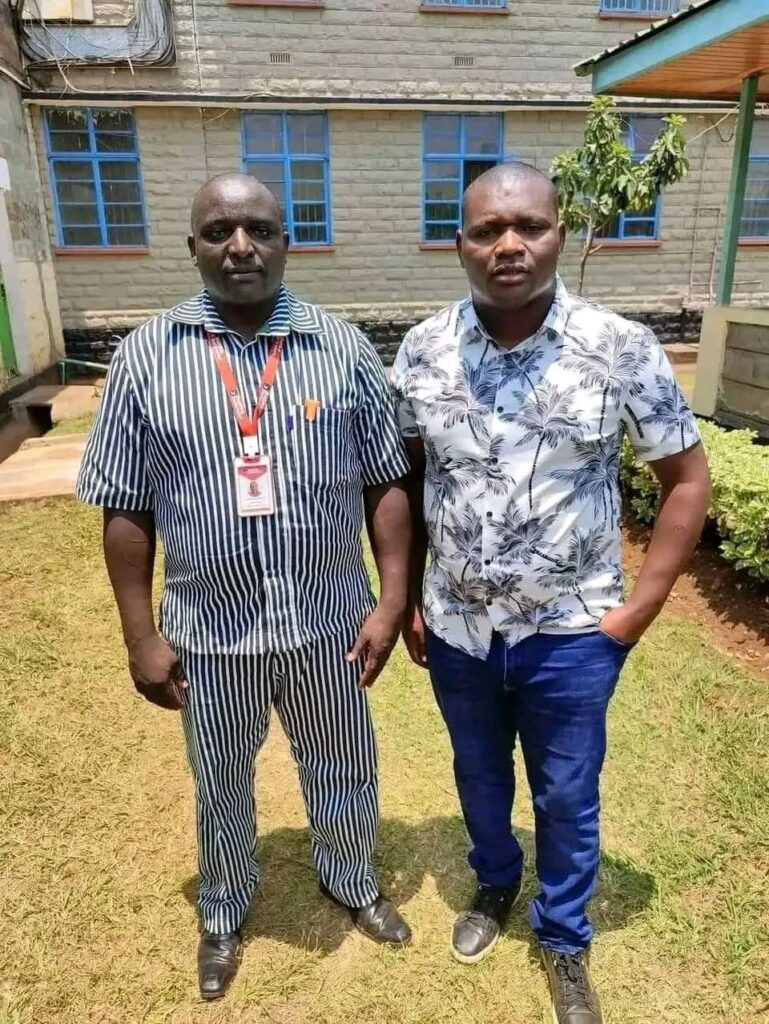Former Ruaraka OCS Nahashon Mutua: From Police Command to Life Sentence at Kamiti Maximum Prison
The story of former Ruaraka Police Station Officer Commanding Station (OCS) Nahashon Mutua, now serving a life sentence at Kamiti Maximum Security Prison, remains one of the most shocking and painful examples of police brutality in Kenya.
His fall from a respected police officer to a convicted murderer stands as a powerful warning about the dangers of power abuse and how such actions can destroy both lives and careers.
It is also a wake-up call to the entire police service on the need for accountability and integrity.
In December 2013, a man named Martin Koome was arrested after a domestic disagreement and taken to Ruaraka Police Station, where Mutua was the OCS. As a Kenyan citizen, Koome was entitled to safety and fair treatment while in police custody.
However, what followed was a horrifying chain of events that exposed deep problems within the police system.
Instead of ensuring Koome’s protection and preparing him to appear in court, Mutua chose to use excessive force.
Investigations later revealed that Koome was brutally tortured inside the station, with OCS Mutua personally taking part in the assault.
Witnesses stated that Koome was beaten severely using a metal pipe and even forced into a drum filled with water.
The beating left Koome with serious injuries. He was later rushed to Kenyatta National Hospital, but despite medical efforts, he died as a result of the torture inflicted on him while in custody.
His death not only exposed the brutality of certain officers but also raised questions about how such actions could happen within a police station meant to protect citizens.
Following Koome’s death, OCS Mutua and his team tried to hide the truth. In an attempt to shift blame, they falsely accused another detainee, Kevin Odhiambo, of being responsible for the death.
Mutua even claimed that Koome had been injured during a fight with other inmates. However, medical reports and witness accounts quickly discredited this story.
The cover-up nearly resulted in an innocent man being charged for a crime he did not commit. This deliberate act of deception by a senior officer shocked many Kenyans and revealed how easily power could be misused to manipulate justice.
The Independent Policing Oversight Authority (IPOA) stepped in and launched a thorough investigation into the incident.
Their findings painted a clear and damning picture of what had really happened. Using medical evidence, witness statements, and expert reports, IPOA concluded that Koome’s fatal injuries were directly caused by OCS Nahashon Mutua.
Their determination not only brought the truth to light but also ensured that an innocent detainee was not wrongly convicted.
The case became one of IPOA’s strongest examples of success in holding rogue police officers accountable and proving the importance of independent oversight in law enforcement.
During the trial, the court heard detailed testimonies from witnesses and reviewed the overwhelming evidence gathered by IPOA.
Despite Mutua’s efforts to conceal his actions and mislead investigators, the truth prevailed. The judge ruled that Mutua was guilty of murder and sentenced him to life imprisonment.
This ruling was widely regarded as a historic victory for justice in Kenya. For many citizens who had lost hope in the fairness of the system, the conviction of such a senior police officer restored a sense of faith in the rule of law.
The sentencing of OCS Nahashon Mutua sent a strong message across the country — that no one is above the law, regardless of their rank or power.
It demonstrated that even those in positions of authority must be held accountable for their actions.
The case was seen as a turning point in Kenya’s battle against police impunity and a reminder that justice can prevail, even when delayed.
It also emphasized the vital role of oversight institutions like IPOA in ensuring police officers adhere to the law and respect human rights.
Without their relentless pursuit of justice, Mutua might have escaped punishment, and the death of Martin Koome could have been forgotten.
Today, Nahashon Mutua’s life sentence is not only a personal punishment but also a national symbol of justice. It marks a step forward in Kenya’s efforts to reform the police service and end the long-standing culture of brutality and cover-ups.
The tragedy of Martin Koome’s death and the eventual conviction of his abuser remind both the police and the public of the importance of justice, transparency, and respect for human life.
It shows that while power can corrupt, the law still has the final say — and when the truth is revealed, justice will always find its way.
This case will forever be remembered as a painful chapter in Kenya’s policing history but also as a story of hope — proof that through persistence and accountability, even the most powerful can be brought to justice.
Join Government Official WhatsApp Channel To Stay Updated On time
https://whatsapp.com/channel/0029VaWT5gSGufImU8R0DO30


